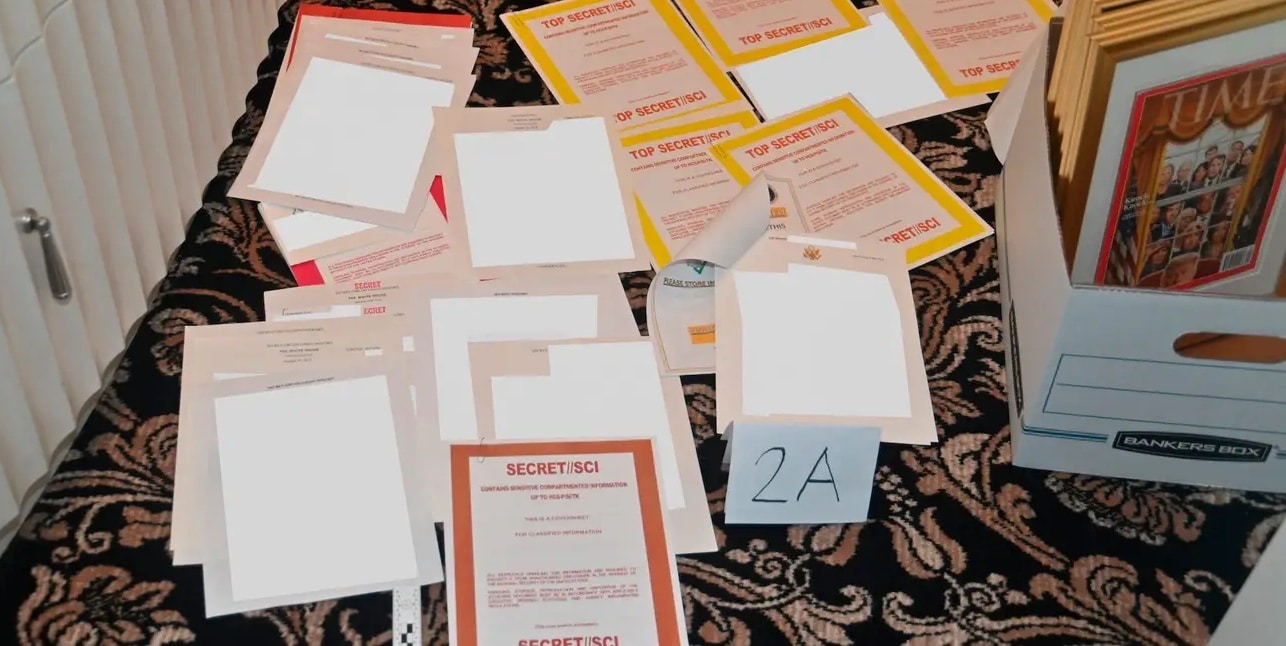Federal prosecutors are using an additional grand jury in Florida—on top of its grand jury in Washington DC—to investigate former President Trump’s handling of classified documents, a source close to the matter told the Associated Press Tuesday night.
The DC grand jury has been meeting for months to consider whether to levy criminal charges against Trump for his retention of hundreds of federal documents—many of them classified—at his Florida country club residence, Mar-a-Lago, as per veteran prosecutor Jack Smith’s appointment as special counsel by Attorney General Merrick Garland in November.
It was not clear, based on the AP source’s information, why federal prosecutors had tapped an additional grand jury, or which witnesses might have been testifying before it.
However, Wednesday morning Trump aide Taylor Budowich was seen entering the courthouse in Miami where the Florida grand jury is convening.
Budowich tweeted afterward, “Today, in what can only be described as a bogus and deeply troubling effort to use the power of government to ‘get’ Trump, I fulfilled a legal obligation to testify in front a federal grand jury and I answered every question honestly.”
The presence of a separate grand jury in Florida suggests that the Department of Justice may be aiming toward at least some potential charges in that state.
The AP’s reporting on the Florida grand jury comes a day after it was revealed that Trump White House Chief of Staff Mark Meadows has testified before the DC grand jury. He joins a series of witnesses, including attorneys and other close aides to Trump, as well as officials with the former President’s real estate business the Trump Organization, who have appeared over the last year before the grand jury in Washington.
On Sunday NBC News reported that the DC grand jury is expected to meet again this week following a hiatus.
Further, Smith and other DOJ officials met for nearly two hours on Monday with Trump attorneys Lindsey Halligan, John Rowley and James Trusty amid reports federal prosecutors are wrapping up the classified documents investigation.
The special counsel’s investigation has centered not just on Trump’s possession of classified documents, but also on his refusal to return the records—some of which are designated top secret—when asked.
In recent weeks it’s been reported that Smith is apparently focusing on whether there is enough evidence to charge Trump with obstruction of justice surrounding his handling of the classified documents, including whether the former President took or directed actions to impede government efforts to collect all the sensitive records.
If the DOJ decides to indict Trump, it would be the first time in U.S. history that a former President was charged with a federal crime.


